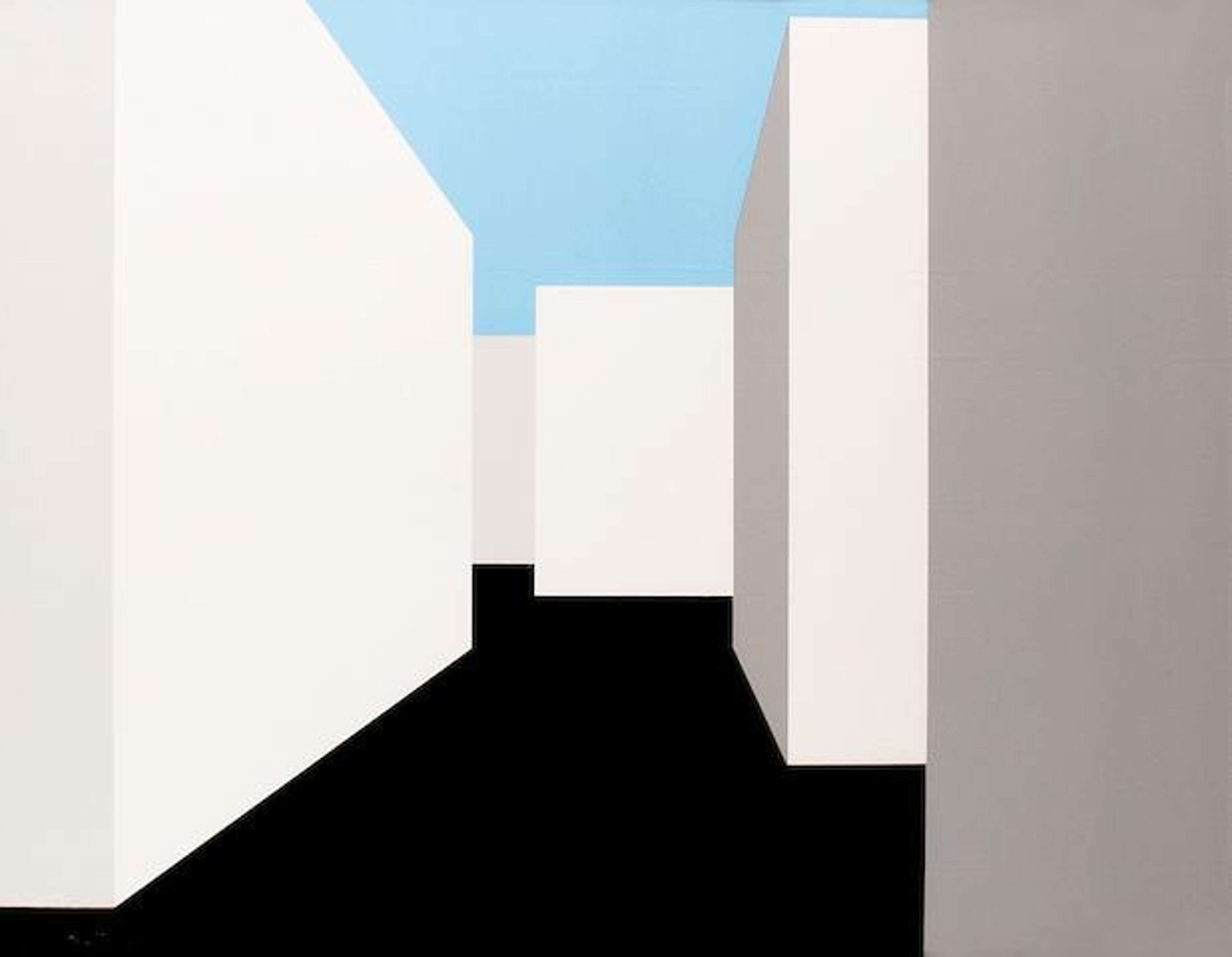
Imagine You Are Walking

Imagine You Are Walking
Signed Print
Julian Opie
£1,500-£2,200
$3,000-$4,450 Value Indicator
$2,750-$4,050 Value Indicator
¥14,000-¥21,000 Value Indicator
€1,700-€2,500 Value Indicator
$16,000-$23,000 Value Indicator
¥310,000-¥460,000 Value Indicator
$2,000-$2,950 Value Indicator
There aren't enough data points on this work for a comprehensive result. Please speak to a specialist by making an enquiry.
60 x 77cm, Edition of 40, Screenprint
Auction Results

Track auction value trend
Meaning & Analysis
Imagine You Are Walking is a screen print, released in 1998 in an edition of 40, by British artist Julian Opie. Opie’s deliberately bland imagery provides pared down visual symbols derived from everyday experiences.
This print depicts a succession of white walls, with entry points leading off in different directions, as well as a black floor and pale blue sky. The minimalist style and flat planes of colour, with an absence of any detail, is typical of Opie’s style, which takes inspiration from sources as diverse as Pop Art, Egyptian Hieroglyphics and Japanese Manga cartoons.
The dark grey road extends in perspectival gradation from the foreground to a vanishing point in the centre of the image. Deriving his imagery from immediate personal experience, Opie then depersonalises this, offering the viewer a commodity; that of being able to make their own personal imaginative journey. Emptied of human presence or details, his imagery is universal.